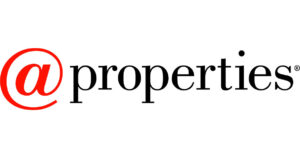Just starting with real estate investing?
Here’s your guide to getting it right.
Diving into the world of real estate investment—whether flips or long-term rentals—can feel overwhelming at first. But with the right support and knowledge, it doesn’t have to be a wild ride. The most important first step? Work with a trusted real estate agent who knows the investment landscape. From there, here are five essential tips to guide your investment property journey.
1. Know your down payment and interest rate requirements
Financing an investment property is different than buying a primary residence. Mortgage insurance typically doesn’t apply, and you’ll likely need at least 20% down. Interest rates are also higher for investment properties, so it’s crucial to work with a lender who can walk you through current rates and loan options tailored for investors.
2. Decide: are you flipping or renting?
Your strategy matters from day one.
-
Flipping requires more upfront capital and energy—you’ll buy, renovate, and sell. Partnering with Brent Hyland means you get expert guidance as both agent and general contractor/designer, simplifying the process and maximizing your profit.
-
Renting involves fewer upfront repairs, but you’ll be in it for the long haul. Maintenance, tenant management, and local market knowledge are key—but so is the reward of steady, passive income over time.
3. Understand the local economy
You don’t just invest in property—you invest in location. Consider:
-
Is there strong job growth in the area?
-
Does the city rely on stable or declining industries?
-
What’s the demand for rentals or housing in this market?
Working with someone who knows the area inside and out makes a huge difference.
4. Do your market research
Before you buy, study the market:
-
What are similar properties renting or selling for?
-
Are landlords offering incentives like free rent?
-
How updated are the comps?
-
Is inventory tight or saturated?
Answering these questions helps you understand the return potential—and avoid costly mistakes.
5. Budget for repairs and ongoing costs
Beyond the purchase price, factor in:
-
Repairs and renovations
-
Closing costs
-
Insurance
-
Property taxes and fees
If you’re flipping, Brent can walk you through the renovation plan, projected resale value, and total cost so you have a full financial picture.
If you’re renting, try to avoid big upfront repair costs—you’ll want to preserve as much capital as possible for your long-term investment.
Ready to invest?
Whether you’re looking to flip a home or build a rental portfolio, Brent Hyland can help you find the right property—and even show you options already scoped and priced out. Reach out to start your investing journey today!
Brent Hyland
(312) 315-3565
brent@hylandhomes.com

